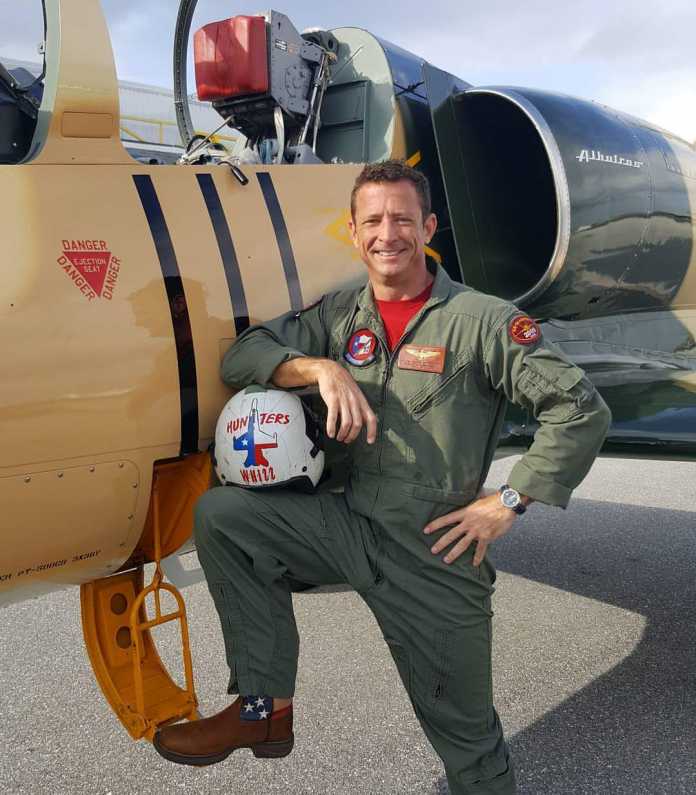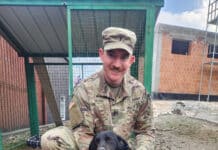A recent study by the Institute for Veterans and Military Families (IVMF) revealed that more than 80% of the 8,500 Veterans, Active Duty, Guard, Reserve, and military-connected dependents sampled felt that their work ethic, discipline, teamwork, leadership and mental toughness were all strengthened by their military service and experience.
What the study also revealed was that, despite the strengthened skills and traits from military service, finding a job, adjusting to civilian culture and understanding how to apply military-learned skills to civilian life was no easy feat, regardless of rank.
Matthew ‘Whiz’ Buckley was no exception. Yet, he found a way to work through the issues and come out on top. A former decorated Navy fighter pilot turned successful CEO, Whiz applied his combat knowledge into his business, Top Gun Options, and was able to grow it to a multi-million dollar options trading school. But getting there wasn’t easy.
“The phone rang, waking me out of a deep sleep. My first thought was, Are you kidding me? Who the hell’s calling at 7:50 AM? That might not strike most people as particularly early, but for the past grueling ten months, my brutal job of piloting the backside-of-the-clock graveyard shift for FedEx had been wearing me down.”
In his book From Sea Level to C Level: A Fighter Pilot’s Journey from the Front Lines to the Front Office, Whiz reveals that prior to his phone call on September 11, 2001, he had a plan. His plan was to head to his first day on the job as an American Airlines pilot, yet he found himself enforcing a No-Fly zone over the United States, much like he did in the Persian Gulf War. And when the dust finally settled, his career with American Airlines amounted to one flight…a one-way flight at that…and unemployment.
While he found some relief “reserve bumming,” his wife took a job working nights and weekends at an Italian restaurant as a waitress. Still coming up short, Whiz jumped into real estate, while becoming a consultant for a subcontractor of L3 Communications. He also took a part-time job with Afterburner, a business seminar company comprised primarily of current and former fighter pilots. As 2002 came to a close, he managed to land a series of acting gigs, which ultimately allowed him to drop COBRA medical coverage in favor of the Screen Actors Guild health care plan.
Five jobs in two years. Whiz was doing what many Veterans do on behalf of their families to make it: whatever it takes. The upside according to Whiz was being able to see the business world from a number of perspectives, which expanded his worldview.
Whiz shares not only his struggles finding a new sense of mission and purpose but also the loss of his dad, whom he was very close to, and how this loss drove him to really think outside of landing the “traditional job.”
In 2016, the Institute for Veterans and Military Families (IVMF) at Syracuse University launched an extensive qualitative research study on the experiences of veteran entrepreneurs, entitled Operation Vetrepreneurship. The research revealed four of the common reasons veterans are motivated to engage in entrepreneurial activity:
• Dissatisfaction with the civilian workforce: disorganization and limited opportunities to showcase skills • Business opportunities where they can forge their own path
• Personal and financial independence
• Desire for work-life balance and flexibility
Whiz is a true reflection of these findings. From Sea Level to C Level: A Fighter Pilot’s Journey from the Front Lines to the Front Office is not just a success story accomplished by a Veteran who got lucky. It reveals how Whiz channeled his skills and abilities to launch his multi-million dollar options trading school. The harder and smarter he worked, the “luckier” he got. It is a reminder to all readers, regardless of their service, but certainly relevant and relatable to those who have transitioned, that circumstances don’t – or at least shouldn’t – define us, nor should they limit what we are able to accomplish.
The book is chock full of helpful reminders that will aid individuals on both a personal and professional level; reminders that we all are responsible for our actions and that one of the most effective ways for leaders to lift morale is to praise members of their team in public.
When I asked Whiz what one piece of advice he would give someone who is transitioning, he paused for just a moment before answering, “Keep your fire in your belly, but hold your fire with civilians. Don’t expect the corporate world to be like your platoon or squadron – you were tight. Hold on to your support network – your closest friends were in the military – keep your fire with those guys…you can open up your throttle there…don’t open your throttle in corporate.”
Bottom line: Prior to TGO, Whiz was an F/A-18 Hornet pilot and Instructor, and flew 44 combat sorties over Iraq, being awarded 2 Strike/Flight Air Medals by the President of the United States. When he transitioned, these sets of accomplishments were essentially “hidden” or not understood by the civilian sector and he had to re-invent himself. In today’s economy with new efficiencies and technologies, many will be forced to re-invent themselves – From Sea Level to C Level: A Fighter Pilot’s Journey from the Front Lines to the Front Office offers a true plan of action to get back on a pathway to success.

The Military Wire, hosted by Mike Schindler, interviews some of America’s most elite men and women who have served this country in hopes that you the listener will gain an “ah-ha” moment that will help you move your life forward.
Mike is a US Navy Veteran, an award-winning author, and has been featured on Yahoo Finance, the Boston Globe, NY Post, USA Today, Q13 Fox, and numerous other media outlets discussing why today’s Veterans are truly one of America’s Greatest Assets. Mike is the author of two highly endorsed books, “Operation Military Family: How Military Couples are Fighting to Preserve their Marriages,” and “U.S. Veterans in the Workforce: Why the 7% are America’s Greatest Asset.”
All content herein is owned by author exclusively. Expressed opinions are NOT necessarily the views of VNR, authors, affiliates, advertisers, sponsors, partners, technicians, or VT Network. Some content may be satirical in nature.
All images within are full responsibility of the author and NOT VNR.
Read Full Policy Notice - Comment Policy






























